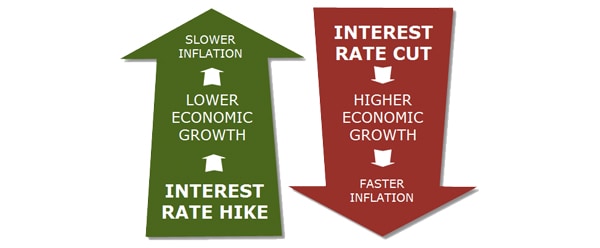Barely a week goes by in Australia without news of another broken relationship with a big bank on small business making the headlines, and yet the full extent of relationship between the business and bank is not fully known. One of the the biggest issues that seem to come up, over and over is the cost of the finance offered by the bank to their client/s – it has often come down to simply ”take it or leave it”.
Already in 2018, we have heard of heavy-handed tactics regarding newsagents who were offering Western Union services, and complaints from legiOptiPayate adult retailers who were apparently being judged on moral grounds by their banks. In both cases, small businesses saw their banking facilities withdrawn at very short notice, something which is disastrous for any trading organisation.
We also heard, last year, of far more widespread issues: clauses in business loan and business overdraft agreements which allowed banks to vary terms and even summarily withdraw facilities from their SME clients. Many others simply can’t access crucial business funding from the banks at all.
just how badly are the banks treating australian smes?
Like it or not the Royal Commission on Banking, and we should find out later this year just how poorly banks have been treating for Australian business. However, the very fact that such an investigation is required speaks volumes about the attitude banks have taken towards small and medium sized enterprises.
One term you could use to summarise that attitude is ‘cash cow’. Quite simply, the banks thought businesses had few options for financing and have been pricing business loans and business overdrafts accordingly.
Statistics have repeatedly shown that the real price of business loans rose following the Financial Crisis and stayed at unprecedentedly high levels for an extended period of time. That is because whereas the cost of money to banks plunged due to monetary easing, this was not passed onto businesses in the same proportionate way that it was, to an extent, to mortgage holders.
The latest data from the Reserve Bank has been given a ludicrously good spin by the Australian Bankers Association – who else – and this has largely been swallowed by the media. But the statistics showing that business borrowing rates have fallen from 8.4% to 5.3% on average since 2011 should be seen for what they are: evidence of a huge premium over the bank borrowing rate which has only recently moderated in the face of fierce negative publicity and such rates quoted invariably exclude fees such as establishment and undrawn line fees.
While the Australian Bankers Association claims that SMEs are “saving” $9bn compared to 2011, a more realistic take would be that they have been royally ripped off to the tune of tens of billions of dollars over the past few decades.
cheaper and safer alternative to bank loans
Fortunately, more and more Australian businesses are waking up to the fact that they don’t have to look to the banks for their financing at all. Alternatives such as debtor finance or invoice finance offer a far safer, is more efficient and is often more cost effective than securing a business loan or overdraft, for most small to medium size businesses.
With the business receiving their funds upront on the bulk of the value of a firm’s accounts receivable (instead of waiting 30, 60 or even 90+ days), there’s no risk of a sudden withdrawal by the funding company. There is usually a simple, pre-agreed and one-off fee for the service, and because invoice finance is based on current cash flow, not historical financials, successful businesses are rarely turned away.
Australia’s big four banks have made billions of dollars of profit out of the nation’s small businesses over the years. It’s certainly time SMEs got a fairer funding deal – and they can, if they take their financing needs into their own hands and look to the alternative of invoice finance.
Who is OptiPay?
OptiPay, one of Australia’s leading business finance providers, has been dedicated to helping small business owners solve cash flow challenges for over a decade and has provided $1.5 billion in business funding to more than 500 Australian businesses. OptiPay specialises in modern financing solutions such as invoice factoring, invoice finance, debtor finance, and lines of credit. OptiPay’s mission is to support business growth providing liquidity in as little as 24 hours, ensuring they have access to tomorrow’s cash flow today. This rapid access to funds helps businesses maintain smooth operations and seize growth opportunities without the stress of cash flow constraints. At OptiPay, we believe that healthy cash flow is the lifeblood of any successful business. Our commitment to helping businesses overcome financial hurdles and achieve their growth ambitions has solidified our reputation as a trusted partner in the business finance sector. Whether you are looking to stabilise your cash flow, expand your operations, or navigate financial challenges, OptiPay is here to support your journey with innovative and efficient financing solutions.



